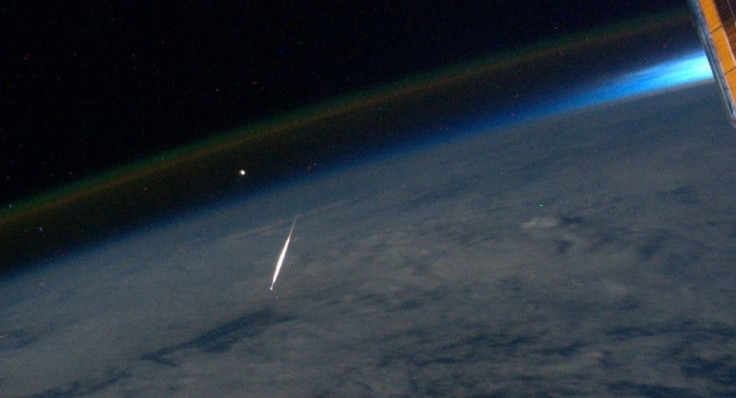Russian Freighter Delivers to ISS: First iPads Flying in Space

On Wednesday morning, an unmanned Russian freighter makes cargo deliveries aboard the International Space Station. Among other needed supplies for astronauts in orbit, the spacecraft also delivered the first iPads to ever fly in space.
After a crash that happened earlier on August 24th, the three-man crew was left with limited rations. According to Russian space officials, the Soyuz rocket crashed into and destroyed the Progress 44 cargo ship intended to deliver to the ISS. The two spacecrafts collided in Siberia, Russia due to a gas generator malfunction, officials say.
Now, after a three days' mission the Progress 45 cargo ship has successfully docked the ISS with the delayed supplies. The spacecraft departed on Sunday and arrived the ISS at approximately 7:41am ET. With more than 2.6 tons of cargo onboard, the Progress 45 was loaded with propellant for ISS thrusters, oxygen, water, spare parts, and other maintenance and experimental equipment.
This time, the Progress 45 shipped two of Apple's iPads to the crew for entertainment. Space officials also say iPhones delivered the last time were preloaded with an app to help astronauts with their experiments. What could be on the tablet this time?
The cargo ship will be staying in orbit for three months and leave the ISS to return to Earth on January 25th next year. Fox News reports that the trip was made possible by the agreement of 16 nations and a $100 billion funded project. Since the U.S. has put a halt to its shuttle programs this summer, these Russian cargo ships are the only ones able to make trips to the ISS. NASA astronaut Mike Fossum told MSNBC there was uncertainty in the program after the initial crash, but this recent launch was smooth enough the Soyuz crew is already departing to Baikonur.
By November 14th, a new crew team is expected to board to relieve the current crew of their duties. Space stations are saying another Soyuz crew will also be launching in December, adding three to the team of three to restore normal crew rotations with a group of six.
© Copyright IBTimes 2025. All rights reserved.





















